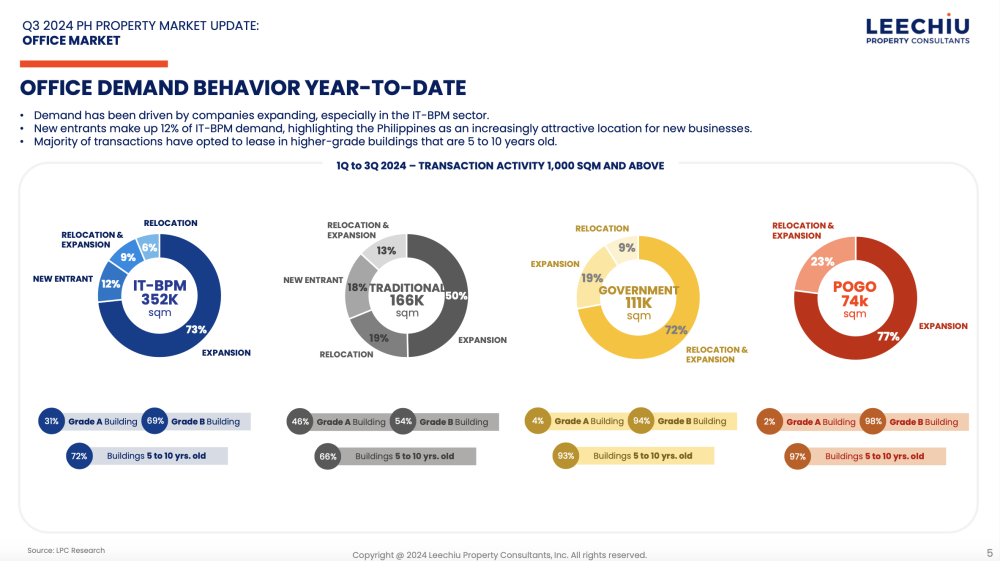New horizons: The IT-BPM sector’s shift to provincial hubs

The Philippine IT and business process management (IT-BPM) industry has long served as a key economic driver, fueling growth, creating jobs, and boosting global competitiveness.
In 2023 alone, the sector created approximately 1.7 million jobs and generated $35.5 billion in revenue, making it the second largest contributor to the country’s economy, next to remittances from overseas Filipino workers (OFW).
As Metro Manila becomes increasingly congested and costly however, IT-BPM firms are setting their sights on provincial locations as new operational hubs.
To the provinces
In recent years, the high operating costs, intense competition for talent, and quality-of-life issues in Metro Manila have encouraged IT-BPM firms to explore provincial expansion.
Initiatives like the Digital Cities 2025 roadmap, a collaboration between the IT and Business Process Association of the Philippines (IBPAP), the Department of Information and Communications Technology (DICT), and Leechiu Property Consultants (LPC), aim to transform 25 provincial cities into IT-BPM-ready hubs.
These cities—chosen for their talent pools, infrastructure, and favorable business climates—are projected to become prime destinations for global investments, helping balance development and reduce Metro Manila’s business concentration.

Why provincial expansion works
Expanding to the provinces offers significant benefits for IT-BPM companies.
First, operational costs, including real estate, utilities, and other overheads, are considerably lower than in Metro Manila. This affordability allows companies to maximize profitability while offering competitive salaries suited to local living costs, which in turn spurs economic growth and employee development.
Provincial locations also provide access to an eager,
educated workforce. With graduates from local universities trained in fields like customer service, IT, healthcare, and finance, IT-BPM companies can find a motivated talent pool without the high competition that defines the Metro Manila market.
Many employees appreciate the opportunity to work close to home, leading to higher engagement, stronger retention, and reduced turnover costs. This enables IT-BPM firms to invest in localized training programs that align with the needs of specific communities, helping build a more dedicated, specialized workforce.
Success stories
Provincial IT-BPM hubs are seeing remarkable growth, with several cities emerging as prime locations.
In Cebu, a well-established IT-BPM center, demand remains high. Leechiu Property Consultants reports that Cebu accounted for nearly half of all provincial office space demand in the third quarter of 2024. In Dumaguete, Robinsons Cybergate Dumaguete 1 and 2, currently under construction, will soon add 19,000 sqm of leasable office space, addressing the increasing demand in Negros Oriental’s capital.
Batangas is also gaining traction as a strategic IT-BPM destination in Southern Luzon, with LIMA Tower 1, located in LIMA Estate, already half pre-leased by key industry players. Meanwhile, Davao has showcased its IT-BPM potential through the recent Digital Careers and IT-BPM Expo, organized by DICT and and the Association of IT-BPM Industry Network of Davao (AI-BIND), which connected local talent with a variety of job opportunities in the sector.
Challenges in provincial expansion
While promising, expanding IT-BPM operations to the provinces presents challenges.
Infrastructure, particularly high-speed internet, often needs upgrades, and bridging skills gaps may require investment in training. Adapting to local regulations and workforce expectations, such as night shifts, also requires careful planning. Strategic collaboration with local stakeholders is essential for establishing successful and sustainable provincial operations.
Outlook and support
As the government continues to roll out incentives and improve digital infrastructure, provincial IT-BPM hubs are well-positioned for steady growth.
The Philippine government’s investment in digital connectivity and tax incentives, combined with a commitment to balanced regional development, creates a strong foundation for IT-BPM expansion beyond Metro Manila. As the industry diversifies into high-value services like healthcare information management and data analytics, provincial locations are becoming appealing centers for specialized operations.
Businesses looking to tap into the growth of provincial IT-BPM hubs can partner with a reputable real estate brokerage and property consultancy firm.
These firms offer expert guidance on market dynamics, site selection, and regulatory compliance, streamlining the expansion process and maximizing cost efficiency. By leveraging their expertise, businesses can successfully navigate the complexities of provincial expansion and position themselves for long-term success.

The author is the associate director for Commercial Leasing at Leechiu Property Consultants Inc., the country’s premier real estate advisory firm. For inquiries, visit www.leechiu.com

















